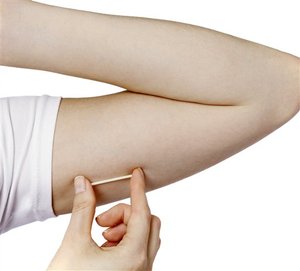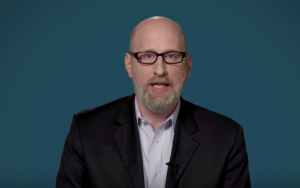In an ideal world, no one would have extramarital sex, and all children would have moms and dads tuck them into bed at night. However, teen pregnancy is so common that some high schools now have been forced to open daycare centers to allow teen moms to continue their education. So what do we do?
Recently, the American College of Obstetricians and Gynecologists updated its guide for teen sexuality; it now recommends IUDs and hormonal implants as the most effective method of pregnancy prevention for teens. The Washington Post explained the new position of the American College of Obstetricians and Gynecologists and laid out the differences between the two recommended methods:
An IUD, or intrauterine device, is a small, T-shaped piece of plastic inserted in the uterus that can prevent pregnancy for up to 10 years. An implant is a matchstick-size plastic rod that releases hormones. It is placed under the skin of the upper arm and usually lasts three years.
I’m a conservative Christian who believes in encouraging teens not to have sex until marriage, but my idealism doesn’t change the fact that many teens are having sex. However, all women should be able to agree that this new approach is unnecessarily psychologically and physically damaging. That’s why a comment under the WashPo article got my attention. Laura Wershler, executive director of Sexual Health Access Alberta (formerly Planned Parenthood Alberta), commented, “That the American College of Obstetricians and Gynecolgists now recommends IUDs and implants as the best methods of birth control for teenage girls horrifies me.”
In an interview on a different site, she explained more fully why she’s opposed to these being presented as “just another option:”
I think there is concern with suggesting there may be problematic issues with menstrual suppression — whether in the way women are encouraged to consider this, or our readiness to understand it as just another option — and this concern comes out of a fear of having our pro-choice values challenged. It is very difficult for a pro-choice organization to say there are problems associated with menstrual suppression through long-term hormonal birth control use.#…#Ultimately our inability to present the downside of hormonal contraception and champion the growing research on the benefits of healthy, continuous ovulation comes from a belief that our pro-choice stance will be questioned.
She goes on to advocate something called “slow contraception.”
We have got so used to this easy ‘fast-food’ approach to birth control — take a pill, put in a ring, slap on a patch — that we are not recognizing that if we want to look at alternatives it will require a certain analysis and introspective look at our sexual lives. It will require a different mindset. It won’t be about 24/7 availability for sex whether you feel like having it or not.
Kudos to Ms. Wershler for speaking out against these new suggestions from the American College of Obstetricians and Gynecologists and for having the courage to suggest that people should think before having sexual intercourse. Yes, even teens.
And I would add, especially teens!
Read more on the Faith and Family Channel, follow me on Twitter, and fan me on Facebook!
This article first appeared on National Review.










